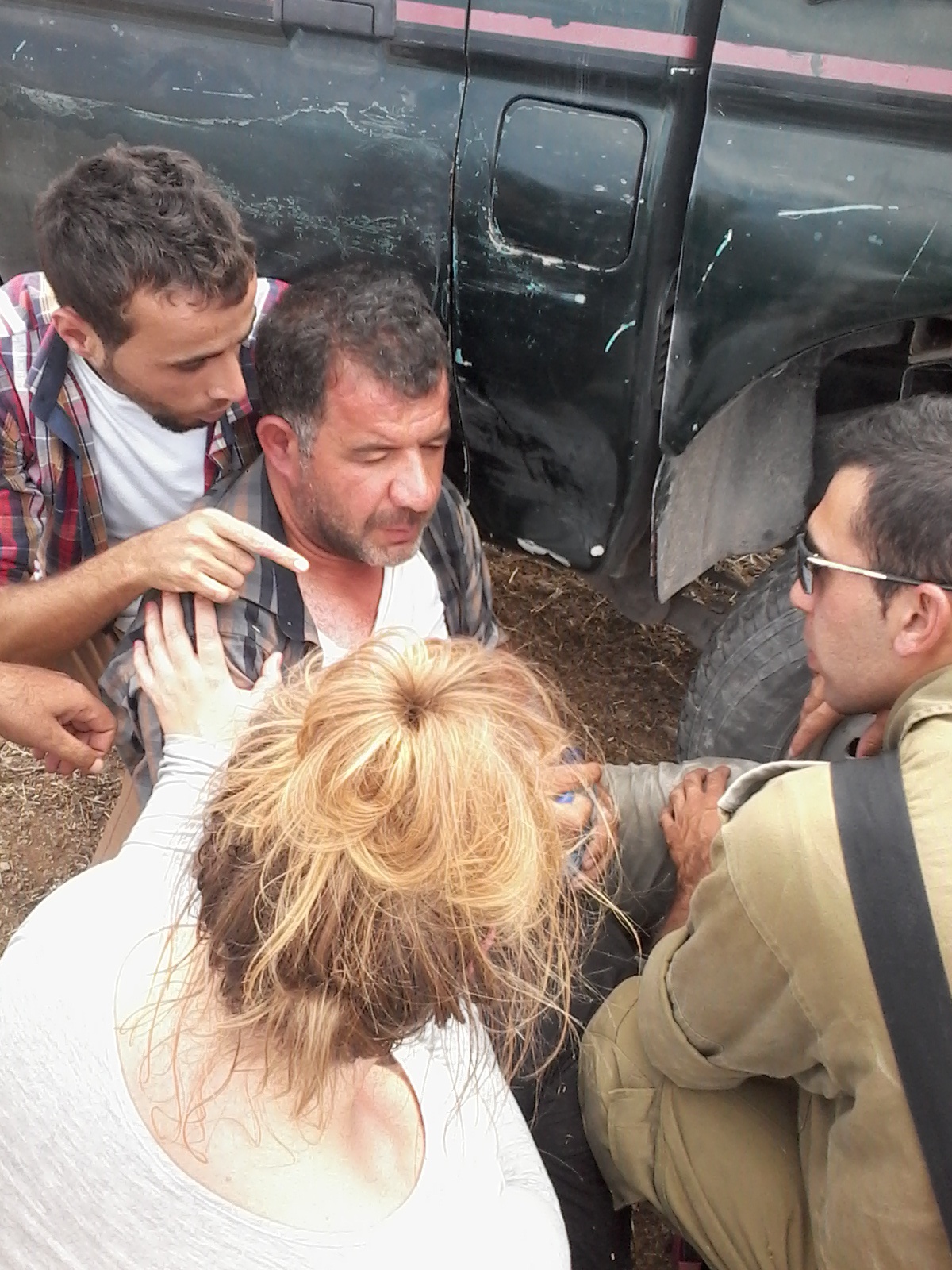Author: ISM Media
-
21 Palestinians arrested in Qarawat Banea Hassan since July
4th October 2014 | International Solidarity Movement, Nablus Team | Qarawat Banea Hassan, Occupied Palestine On the 30th of September, six young men from the village of Qarawat Banea Hassan, south of Nablus, were arrested by the Israeli military. At 1am, five jeeps with around 20 solders surrounded the village looking for Jema Kanan (23-years old), Jema Rayan (22-years…
-
Two arrests, three detentions and over 100 tear gas grenades used against children in Hebron since the school year began
2nd October 2014 | International Solidarity Movement | Hebron, Occupied Palestine “The child are having problems concentrating on their school work due to their emotional state and the stress due to the daily attacks by the occupation forces, which are continuously escalating.” Stated Hebron teacher, Shukri Zaroo, to the International Solidarity Movement (ISM). Children in al-Khalil (Hebron)…
-
Israeli soldiers delay medical treatment to arrested Palestinian
1st October 2014 | International Solidarity Movement, Nablus Team | Khirbet Al-Tawil, Occupied Palestine On Monday morning, the 29th of September, settlers and the Israeli army invaded the village of Khirbet Al-Tawil east of Aqraba. They destroyed the village’s main electrical cable and water pipe. The inhabitants of the village have been without electricity and running water since…



